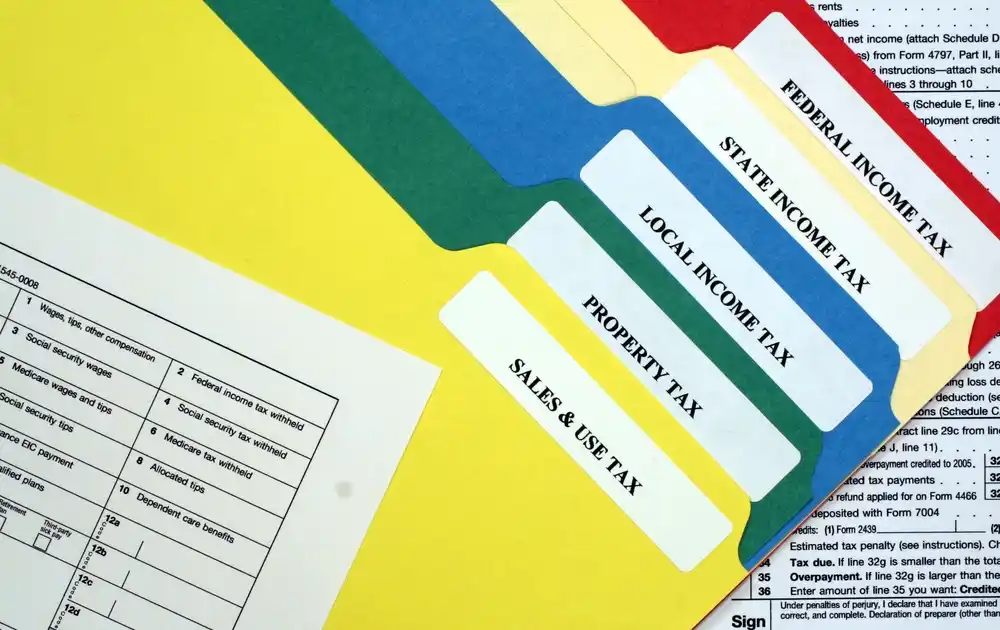Retirement should be your golden years: more time for family, hobbies, and traveling. But all of that hinges on whether your money lasts for the rest of your life. You’re far from alone if that worries you. 45% of baby boomers say their greatest retirement fear is outliving their savings and investments, according to the Transamerica Center for Retirement Studies (TCRS).
Fortunately, there are things you can do to avoid running out of money. Let’s dig into common pitfalls and blind spots that can get in the way of a financially secure retirement. With a bit of strategic planning, you can take control and decrease your chances of going broke.
Plan for 30+ Years of Retirement
Underestimating your life expectancy is one way to set yourself up to run out of money. People are living longer than previous generations, so Kiplinger recommends planning for at least 30 years of retirement. In fact, TCRS found most respondents anticipate living to age 90. However, they may not be building a large enough nest egg.
While workers estimate they’ll need $500,000 in retirement savings, the survey found the median amount of money in retirement savings is currently $144,000 for Baby Boomers, $64,000 for Gen Xers, and $23,000 for millennials. Of course, that’s not the whole story. Things like Social Security benefits and downsizing can help shore that up.
To calculate a solid estimate of how much money you’ll need, CNBC suggests adding up your annual expenses (mortgage, groceries, insurance, etc.) and using the Social Security Administration’s online calculator to estimate your benefits. Then, subtract your estimated benefits from your estimated expenses and multiply that number by 30.
 Shutterstock
ShutterstockSet a Practical Spend-Down Rate
When the time comes to retire, look at your portfolio and figure out a spend-down rate that’ll make it last. The “4% rule” is a common recommendation, but a slightly more modest approach can help stretch it out. In AARP, investment advisor Allan Roth suggests a “3.5% rule” of sorts.
So, what does that mean? Basically, the retiree withdraws 3.5% from their portfolio in the first year of retirement. Then, they increase that percentage every year by the rate of inflation. Let’s say the retiree has $100,000 in their portfolio, for example. Roth says they “could spend $3,500 the first year.”
To continue the hypothetical, the source says the retiree “could increase it by $70 the next year” with 2% inflation. A qualified financial expert can help you calculate a spend-down rate that makes sense for your specific situation.
 Getty
GettyClose the Bank of Mom and Dad
Considering the price tag of a college education, it’s understandable to want to help your kids or grandkids pay for it. But that help shouldn’t come at the expense of your retirement savings. While students can take out loans, there aren’t any loans for retirement.
Similarly, think twice about helping your kids or grandkids with other expenses like buying a house. You might be able to cover these costs without putting your financial security at risk — just consider the implications for your retirement before opening your wallet.
Retirement planner Rafael Rubio explains to The Balance that it’s a bit like when flight attendants tell you to put on your oxygen mask before helping others. “You need to take care of your retirement first,” he says. “It’s not being selfish — it’s being realistic.”
 Shutterstock
ShutterstockBe Strategic About Your Portfolio
Another potential pitfall is putting all of your eggs in one basket, so to speak. Diverse retirement portfolios of stocks, bonds, and cash are typically recommended. That’s because the combination can help protect you from market volatility and inflation.
“The risk in abandoning stocks,” Kiplinger explains, “is that the spending power of your money in the bank erodes every year with inflation.” Stocks offer a growth opportunity that can outpace inflation. The source says 40% to 60% of most people’s portfolios should be in stocks.
However, there is no one-size-fits-all answer. A qualified financial expert can help you work out the details and land on the right allocation for your situation. They can also help you figure out if that allocation should change after you retire.
 Getty
GettyThink About Your Discretionary Spending
Not scaling back discretionary spending after retiring can rapidly deplete retirement savings. So, you may want to prioritize certain purchases over others. For instance, NPR says, “research has shown that experiences tend to make people happier than material possessions.”
Experiences like vacations and special dinners are something to look forward to with anticipation. And they can be enjoyed with friends and family, creating lasting memories. As a result, retirees might choose a more budget-friendly car in order to afford a trip with loved ones.
 Shutterstock
ShutterstockWork Longer (But Have a Backup Plan)
If you’re able to continue working, then it can pay to delay complete retirement. For one thing, CNBC says waiting to collect Social Security benefits until age 70 results in higher payments. Plus, you’ll continue socking away a salary, whether you stay in your current position for a few extra years or take a part-time job for retirees.
TCRS found that 52% of workers plan to work past age 65 and 57% plan to work in retirement. However, circumstances like your health or layoffs may get in the way. Should complete retirement come sooner than expected, it’s important to build up your emergency fund. Disability insurance is something else to consider.
 Shutterstock
ShutterstockUnderstand State and Local Taxes
Some people make the mistake of only factoring federal taxes into their retirement strategies. “Depending on where you live,” Kiplinger cautions, “high state income taxes, state and local sales taxes or property taxes – or a combination of all three – could eat up your hard-earned savings quickly.”
Several states even tax Social Security benefits. Low taxes are part of the reason certain states like Florida and Arizona are popular retirement spots. Moving isn’t a realistic option for everyone, but everyone should make sure they understand how state and local taxes will impact their finances in retirement.
 Shutterstock
ShutterstockWatch Out for Scams That Target Seniors
Unfortunately, seniors are prime targets for scammers. According to CNBC, most people’s “median net worth peaks between ages 65 and 74.” So, criminals view them as a demographic with more money to steal. Also, research suggests people are more likely to trust dishonest people when they get older.
That means seniors need to stay vigilant to protect their retirement savings from criminals. Common scams involve fraudsters posing as officials from agencies like Medicare, Social Security, or the IRS. Government agencies will contact you by mail. Hang up if you get a call asking for personal information or payment.
 Shutterstock
ShutterstockMake Sure You Have Enough Insurance
When you retire, you’ll want to take look at your insurance needs. After all, health typically deteriorates with age, and health care expenses can bust retirement budgets. Medicare is helpful for basic coverage, but you may want to look into adding a Medigap supplemental insurance plan or a Medicare Advantage plan.
There’s also a possibility you’ll need long-term care at some point. According to Genworth Financial, 7 in 10 people will need long-term care, and the median price for a private room in a nursing home is $9,034 a month. So, you may want to consider investing in long-term care insurance to help with the steep cost.
 Shutterstock
ShutterstockThe Bottom Line
Whether you’re decades from retirement or already retired, it’s important to do everything you can to put yourself in the best possible financial position. That way, your golden years are less likely to be spent on the edge of going broke.
It’s ideal to start investing in your retirement as early as possible, but there are steps you can take at any point in your retirement journey to avoid running out of money. Consider talking with a qualified financial expert to get advice for your situation.
 Shutterstock
Shutterstock







